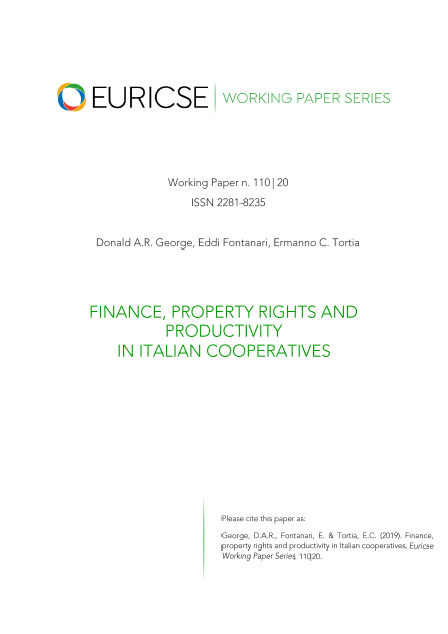WP 110 | 20 Finance, property rights and productivity in Italian cooperatives
Edited by: Donald A. R. George, Eddi Fontanari, Ermanno Celeste Tortia
Standard economic theory predicts that the accumulation of capital by means of indivisible reserves would lead to underinvestment and undercapitalization due to the truncated temporal horizon of worker-members in cooperatives (the so-called “Furubotn-Pejovich effect”). An inefficiently low stock of capital would imply, other conditions being equal, lower labour productivity. We test the real effects of collective capital on productivity using a large panel of Italian worker and social cooperatives. Firm-level balance sheet data from Bureau van Dijk Aida database are used to estimate the effects of collective and individual reserves of capital on total factor productivity using an augmented Cobb-Douglas production function. Social security data on employment contracts in all Italian enterprises are used to measure firm-level full-time worker equivalents employment. Collective ownership and total factor productivity are positively and significantly related after controlling for factor productivity, individual capital ownership and other standard firm-level and sectoral controls. This result is robust to different specifications of the model and suggests a positive role of collective capital in strengthening financial sustainability, patrimonial and employment stability in the long run, favouring also favouring firm specific investments.

